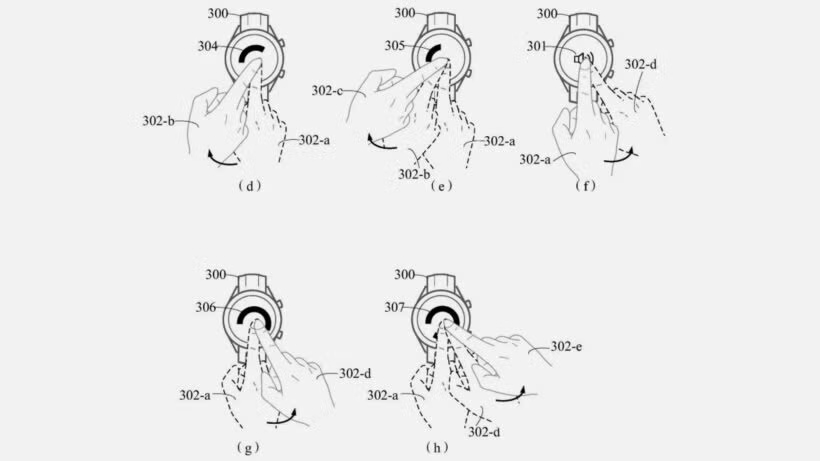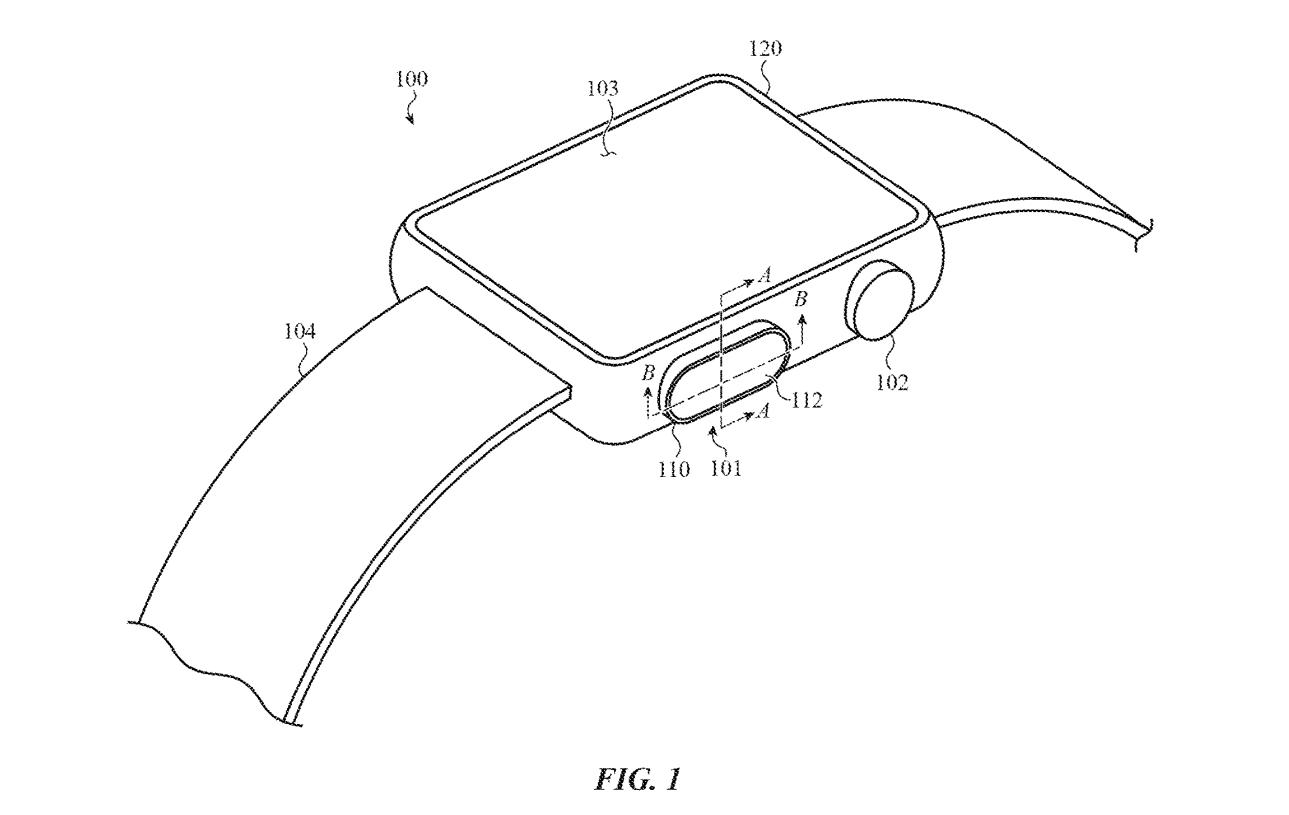Huawei follows Apple, Samsung with intriguing fingerprint smartwatch idea
We've seen smartwatch patents for fingerprint sensors since 2018; now Huawei is calling dibs, but Apple and Galaxy Watches would benefit, too.

What you need to know
- Huawei patented a 3D fingerprint sensor for its smartwatches for both biometric ID and gesture controls.
- The patent suggests you'd be able to twist your finger (counter-)clockwise to adjust watch settings like volume and brightness.
- Smartwatches would also recognize multiple fingerprints in order to register different actions to specific fingers.
- Samsung and Apple previously patented smartwatch fingerprint sensors in 2018 and 2022, respectively.
Smartwatches with contactless payments universally rely on clunky PIN systems for security. We've seen Galaxy and Apple Watch patents for in-display fingerprint sensors or Touch ID built into a button, but neither smartwatch brand has brought the idea to actual products. Now Huawei has an even more intriguing fingerprint smartwatch patent, tantalizing us with a feature we may never see for ourselves.
Spotted by MySmartPrice (via Wareable), Huawei's patent describes a three-dimensional "advanced optical fingerprint sensor" built into the AMOLED smartwatch display that can recognize your fingerprint at any angle.
Huawei's patented idea is to let you register multiple fingerprints, then attribute specific actions to each finger; in one figure, tapping a message with your thumb, index, or middle finger triggers three different responses, including calling the messenger.

In another patent image, it shows the smartwatch owner twisting their index finger to "control volume and display brightness through gestures," with the direction of the twist — clockwise or counterclockwise — deciding whether the volume goes up or down.
Many Android smartwatches and Apple Watches can recognize gestures like finger pinches for shortcuts, but long-pressing or twisting specific fingers on a screen might feel more exact and natural to some users. Recognizing multiple fingerprints would also let you set multiple favorite apps or actions.
Plus, of course, you'd finally have the option to use a payment app without needing to hen-and-peck a PIN number on a tiny watch screen, or worry about someone else guessing your PIN. Instead, the Huawei watch would prompt you for your fingerprint after you trigger Google Wallet (or Huawei Pay, in this case).

Samsung first patented the idea of an under-display fingerprint sensor in 2018, but the patent itself was quite vague, also suggesting the idea that their watches might have an under-display camera for an "iris scanner" to authenticate the wearer. Neither ever came to pass, and it seems unlikely Samsung has any current plans for fingerprint tech, no matter how useful it might be in the Galaxy Watch 8.
Be an expert in 5 minutes
Get the latest news from Android Central, your trusted companion in the world of Android
Apple's 2022 Touch ID patent felt much more thought out, with a sensor built into the Side button that could authenticate the user or approve a transaction. But despite how useful this sounded, nothing has come of it, nor of a previous report in 2022 claiming Apple wanted to stick the fingerprint sensor in the Apple Watch S7 crown.
So while Huawei's patent sounds intriguing, it's a bit bittersweet to consider the Chinese smartwatch brand potentially being the first to implement it in its watches, considering you rarely see Huawei products like the Huawei GT 5 Pro sold outside of Asia. A large portion of smartwatch power users who depend on contactless payments will have to keep tapping in a PIN code for the foreseeable future, with no better alternative.
Of course, Huawei might very well never use this fingerprint sensor idea, either! The brand may decide that embedding a complex 3D fingerprint sensor may be more trouble than it's worth, due to the security issues and fingerprint recognition problems we've seen on Android phones over the years.

Michael is Android Central's resident expert on wearables and fitness. Before joining Android Central, he freelanced for years at Techradar, Wareable, Windows Central, and Digital Trends. Channeling his love of running, he established himself as an expert on fitness watches, testing and reviewing models from Garmin, Fitbit, Samsung, Apple, COROS, Polar, Amazfit, Suunto, and more.
You must confirm your public display name before commenting
Please logout and then login again, you will then be prompted to enter your display name.